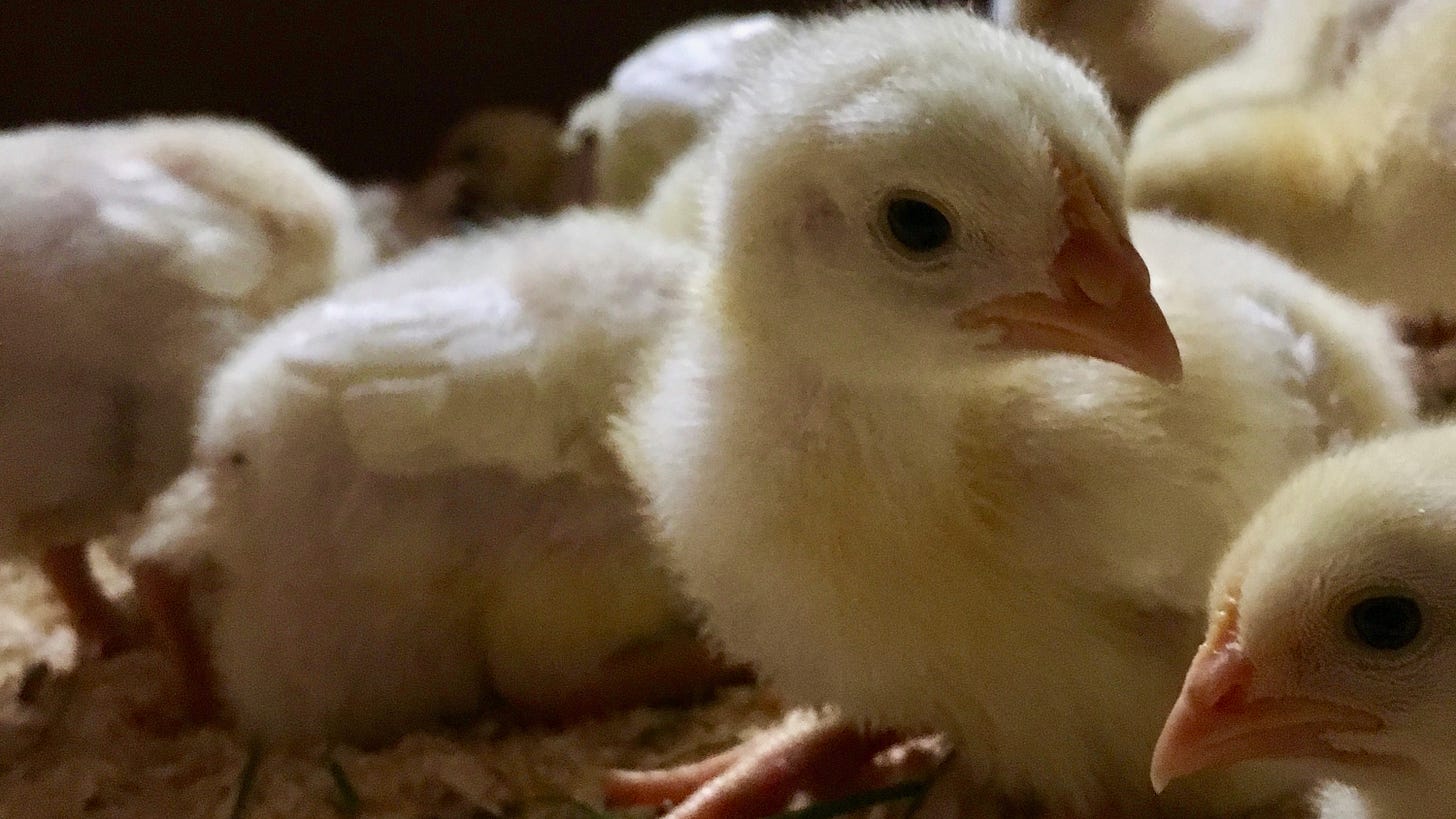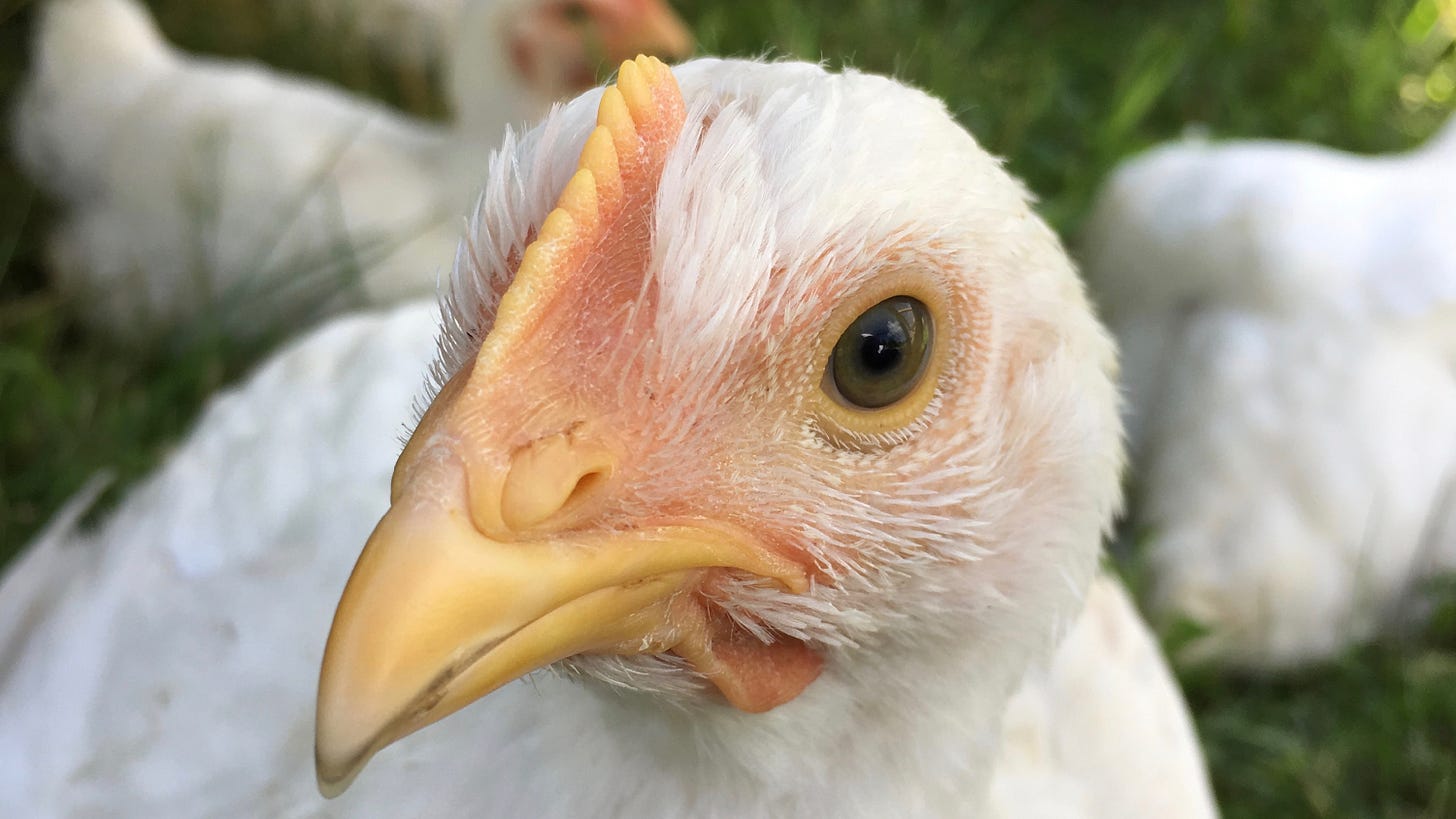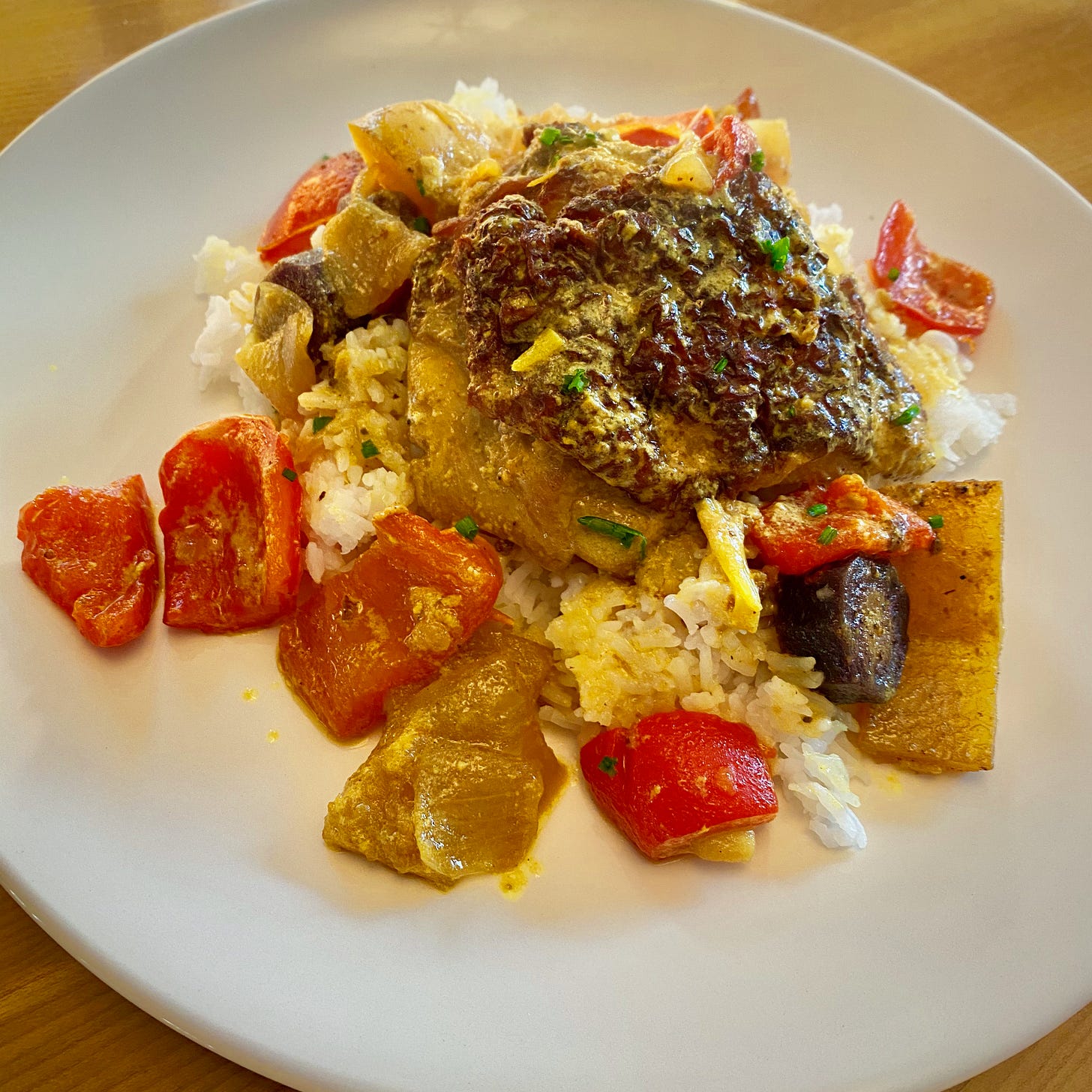The 65th Day of Coronatide
Grand Rapids, Michigan
Hey friend,
Something a little different for you this time.
There was a Twitter kerfuffle last week involving some famous people and questions of ego and food, culture and consumerism, privilege and worth. If you don’t have any idea what I’m talking about, congratulations! You win! If you do, well, #TeamTeigen.
The debacle did get me thinking about where our food comes from, what values it represents, and what stories get to be told. Convenience, cost, time, health, heritage, desire, ecological and ethical concerns—each meal involves calculations that we make, often without much thought. How we produce and consume food is never neutral.
My point isn’t to provoke a guilt trip. I just hope that, as I share what I’m growing and what I’m cooking, you’ll think about what you’re growing and what you’re cooking too. Who grows your food? Where did the recipes come from—or did you even have recipes? What does that say about who you are? Who are the cooks who have fed you well? What does it mean to be well-fed?
Below, you’ll find an essay inspired by the first Farminary chicks, which arrived two years ago this month. I helped raise them. They helped me explore my story and my mixed heritage. (Obviously I’m 3% Portuguese!) The essay takes its shape from a traditional Chinese style of argumentation, which circles a topic before finding its point. Thanks for sticking with me, even through what might be an unfamiliar style of writing. Because I’m a writer of unsurpassed imagination, the essay is called “Chicks.”

I continue to welcome feedback (jeff@byjeffchu.com). Thanks to those of you who have sent in constructive criticism as well as encouragement to keep this newsletter going. It’s one of the scariest things I’ve written. There’s no masthead to hide behind, no brand to tell me what my voice should be. It’s just me.
I’m so glad we can stumble through this together. I’ll try to write more soon.
Much love,
Jeff
*I’m counting my days from March 10th, when my governor, Gretchen Whitmer—also known as That Woman in Michigan, First of Her Name, the Safekeeper—declared a state of emergency. For the love of God and the sake of our neighbors, may we continue to #StayHome, even if the government says we don’t have to.
CHICKS
The Farminary’s first chicks were living, breathing emojis. Scuttering around their sawdust-padded brooder, they chirped, “Love me!” and “I’m cute!” It was as if nature’s algorithm had arranged bone and feather to garner Instagram likes.
The longer I observed them, the more I began to see them less for what they might do for my social-media feed and more for what they were—who they were?—as individuals. One little guy—it might be projection, but I always see runts, whatever the species, as little guys—stood apart. I don’t mean that figuratively: For the first half-hour I watched the chicks, he barely moved. Then he plopped himself in their drinking water. After I extracted him, he just stood there, blinking slowly, as if puzzling over how he’d ended up there.
It was a good question. He and the other chicks, all of a breed called Cornish Cross, had been born in Iowa two days earlier. Seems absurd that you can go online, order birds, and have them forty-eight hours later. But here they were.
—
I spent most of my childhood in the San Francisco suburbs and then in Miami. But I don’t belong to either. When people ask where I’m from, I struggle to answer. If I say California, like my birth certificate does, I’ll often get this in response: “Where are you really from?”
My people never ask this question. That’s not just because “Where are you really from?” is so obnoxious—a reminder that, for all my family has invested in America, including my dad’s U.S. Army service, taxes we’ve paid, and elections we’ve voted in, we’re still seen as foreigners.
My people instead ask where your heung ha is—literally, “Where is your countryside?” It’s not a question about nationality or ethnicity but one of heritage and tradition. What soils did your people tend? Where are your ancestors buried?
The idea is never that you were born in your heung ha. Rather, the term refers to the land to which you can trace your patrilineal roots. Though my dad was born in British-ruled Hong Kong, our home village is 赤坭 (Chek Lai), near Guangzhou, in southern China. The name of my grandfather's village, which is therefore my father’s village, which is therefore my village, translates to "red-brown mud." Nobody can accuse us of over-romanticizing the place.
An extra wrinkle: Chek Lai is our heung ha now. But it isn’t our true home—and I don’t mean this in the evangelical sense, which insists on heaven as Christians’ true home. Our “tribe” is Hakka (客家). The characters mean "guest family.” An ancient journey took us thousands of miles from our ancestral homelands in northern China. Some historians say war sent us fleeing; others say famine. Really, the two are so often braided together, that it seems pointless to try to tease out which.
—
I wondered whether the chicks knew where they’d come from. Even if they didn’t, their bodies told some of the story.
The Americas have no native chickens. The first domesticated birds were cultivated in East Asia. In pre-Columbian times, chickens were raised for meat in present-day Chile. Those birds were trans-Pacific imports, probably brought by Polynesian traders.
The chickens we eat now are more recent immigrants. The vast majority in U.S. supermarkets are some variety of Cornish Cross. That’s a Cornish chicken crossed with a Plymouth Rock—and its story, like mine, is defined by imperialism and globalization.

The Cornish chicken is as Cornish as I am American. Its other name, Indian Game, hints at its background. Bred by aristocratic Englishmen, it traces its ancestry to foreign birds, including the Asil, an imperial-era import from its native Punjab. The Asil was famed for its cockfighting abilities. But after England banned cockfighting in the mid-1800s, that pugnacious spirit became a trait without marketability. Those instincts were bred out by crossing the Asil with tamer varieties.
The full heritage of the Plymouth Rock, a Massachusetts breed, is, like that of so many Americans, lost to history. But in the 19th century, Plymouth Rocks became popular because they were docile and useful. They laid lots of brown eggs. They had tasty meat.
—
I’m a crossbreed too.
One chapter in my family’s story is set in Macau, 100 miles south of Chek Lai. Founded by 16th-century Portuguese traders, Macau looks like a little bit of Lisbon dropped incongruously on China’s southeastern coast. The city’s old Catholic churches, stone-paved streets, and tile-decorated houses exude faded colonial glory.
Almost nobody in Macau speaks Portuguese anymore, but its mixed heritage endures most elegantly in its cuisine. One of my favorite childhood dishes was galinha à Portuguesa—Portuguese chicken. Names elide. There’s nothing particularly Portuguese about Portuguese chicken, though some cooks do throw in olives and chouriço. Named for the colonizer, this dish sings of the cultures of the colonized. Its marinade of soy and rice wine is typically Cantonese. The chicken is bathed in coconut milk and spiked with curry powder and turmeric, which shout out to Goa and Malacca.
When I was a teenager, I began to hear allusions to the origins of the waves in my uncles’ hair and the European features on my great-uncles’ faces. Then I learned that, sometime in the mid-1800s, a Chinese man married a Portuguese woman in Macau.
I don’t know much of the Chinese man’s story, and I don’t know his name.
How did he end up in Macau? Did he defy his parents to marry a foreigner? He might have had social status; he later had the feet of his daughter—my great-grandmother—bound, as only upper-class people did. Unusually, he also equipped that daughter with some education—enough that she became an expert in Chinese medicine.
I don’t know much of the Portuguese woman’s story either, and I don’t know her name.
Was her father a colonial official? Did she defy her family to marry a local? It was more common for Chinese women to marry Portuguese men than the other way around. Was she baptized Roman Catholic? If she held onto that faith, it wasn’t passed down; our family was only Christianized, by Baptist missionaries, in the early 1900s.
All I know is that a son of China wed a daughter of Portugal. This great-great-grandmother gave me the 3.125% of my ancestry that isn’t Chinese. I’m still a little annoyed I didn’t get the wavy-hair genes.
—
It can be unnerving to read breeders’ descriptions of Cornish Cross chickens. You’ll often see adjectives like “efficient.” They “have been selected for fast feathering, steady growth, optimal feed conversion ratios and broad breasts,” one hatchery’s website says. These birds “single-handedly changed American eating habits,” another boasts. “The best choice for a person who wants to quickly produce delicious meat,” adding the ominous warning that they are “non-returnable.”
In the 1950s, breeders began systematically refining the Cornish cross into factory-friendly, supermarket-ready broilers. A Cornish Cross chicken is ready for slaughter in six to eight weeks, less than half the time it takes an heirloom bird to attain market weight.
This hyper-productivity has fed the American appetite for chicken. A century ago, the average American ate just 10 pounds of chicken per year. Today, we eat nine times that. Some 9 billion birds die annually to become nuggets and tenders, Buffalo wings and fried chicken.
We’ve optimized another creature for our purposes. To make meat as quickly and cheaply as possible, we’ve re-created and repackaged birds. To buy shrink-wrapped skinless, boneless breasts or a plastic bag of frozen nuggets is to have only the most distant relationship with the animals that enabled those products. We don’t like to be reminded how other bodies give theirs up for ours.
—
As a Chinese kid growing up in predominantly white communities, I couldn’t change my eyes or my hair, but I tried to minimize other aspects of myself that could be read as foreign. When my mom packed fried rice or marinated beef sandwiches in my lunch bag, I’d scarf the food down where other kids couldn’t smell or see. As I got older, I emphasized my productivity, efficiency, and utility. At school, I was the kid everyone wanted for group projects; few invited me to parties. Like many other minority kids, I was worthy when useful to others and wanted if I could make their lives easier.
In conversation, I lacked my peers’ allusions to movies I’d never seen and music I’d never heard. (The traditional Chinese and evangelical Christian cultures make a potent, mutually reinforcing pair.) I didn’t have their language either. In fourth grade, a kid on the bus yelled, “Bullcrap!” I’d never heard the word before, and I repeated it, turning it over for processing, but too loudly, I guess. He escaped detention. I didn’t. I didn’t know what it meant, and I couldn’t understand why I was in trouble.
Words were often a struggle for me to form, let alone play with—something that has persisted into adulthood. Early in my journalism career, I tried to experiment with syntax and diction, and a colleague asked me, “Oh, is English your second language?” What I lacked in art, I tried to compensate for in work ethic. Though I wasn’t a proofreader, I read proofs anyway. I wasn’t more skilled at finding mistakes. I just worked harder. Again, I earned my spot in the machine by becoming a good cog.
At the office, I never wanted to stand around the water cooler chatting with anyone. Into my twenties, I regularly mispronounced words; I’ll never forget the uproarious laughter that resulted. But I could put a home-baked loaf of cranberry-walnut bread on the table next to that water cooler. Food was a currency I could trade in, and people always wanted to fill their stomachs with something.
—
We tried to give the chickens the best possible lives for as long as they lasted. Another farmhand asked whether we could just let the chickens live out their lives and die naturally. But the grim truth about how they’ve been engineered is that they can’t have good natural deaths. Their little bodies would just suffer, because they’ve been bred to minimize dark meat and maximize white—so much so that, if you let them live too long, their legs can’t support their unnaturally breasty bulk.
Some days, I’d go to the farm and visit the chickens when nobody else was around. As I talked to the them—yeah, I’m that guy—I wondered: In becoming a thing defined by utility to other people, by others’ wants and desires, what do you lose? How do you redeem the legacies of a past over which you had no control?
I still don’t have a good answer.
But maybe I can find the beginnings of one by acknowledging that our bodies carry stories, stories that are messy and complicated, stories full of wonder and pain, the ugly and the beautiful. To regard a chicken’s heritage has helped me to pay attention to my own. To honor its complex hybridity has helped me to honor mine.

And maybe I can cook my way through some of this too. I made Portuguese chicken for dinner last night. I rendered the chicken thighs (dark meat, always) so that the fat infused everything and the skin just arrived at that gorgeous line between golden and brown. Turmeric hinted at bitterness, ginger offered gentle heat, and coconut milk bound everything up in its rich sweetness.
This was my version of the dish, based on the past but not beholden to it. The chicken was succulent, and the mild curry soaked into the pillowy rice. It tasted like sadness and joy, complicated memory and a little bit of healing. It seemed just about right.




Thanks Jeff for your always delicious writing. Glad to have found your blog. Praying you and Tristan are well.
I love the way you weave stories together, Jeff. Thank you for this.